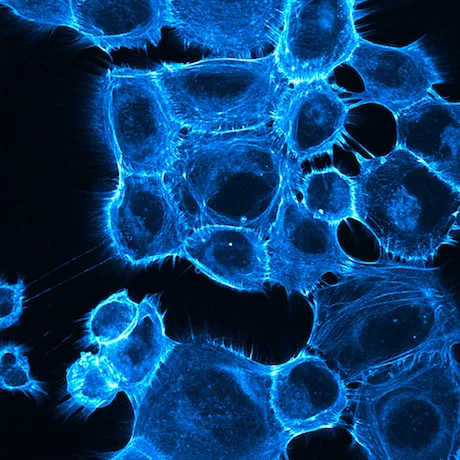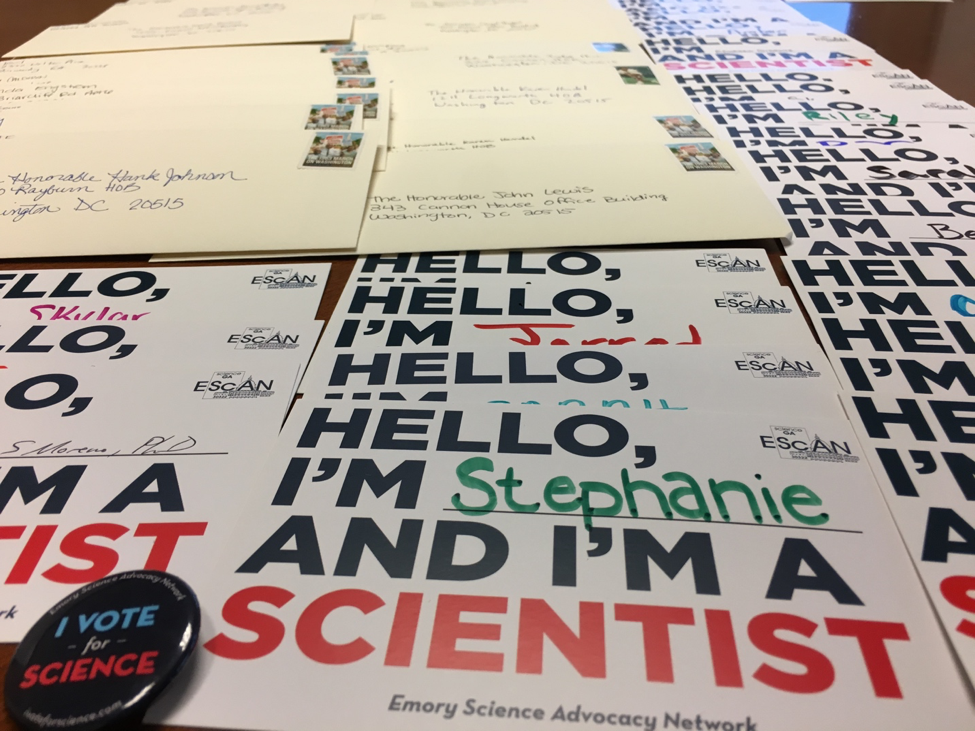By Amielle Moreno
From an intriguing start in poultry science to attending Emory for his Ph.D in Cell and Developmental Biology, Dr. Machaca is continuing his successful career in biology. Graduating in the laboratory of Chairman of the Biology Department Dr. Steven L’Hernault, Dr. Machaca is now a leader in his own right serving as Associate Dean and Professor of Physiology at Weill Cornell Medicine for the Qatar campus. I had the pleasure of asking the 2018 GDBBS Distinguished Alumni of the Year award winner questions regarding his career and field.
From Left: Dr. Steven L’Hernault , Dr Khaled Machaca, Dr. Chris Hartzel, and Dr. Nael McCarty
Why did you choose Emory GDBBS for your graduate training?
I had a somewhat non-traditional graduate school career having graduated as an agriculture engineer for my Bachelor degree from the American University of Beirut in Lebanon where I grew up. I had no intentions then to be involved in research as I was not familiar with what that entails. Nonetheless, I was interested in pursuing graduate school out of a pure sense of seeking a better understanding of the science underlying approaches in the agriculture industry. I chose to pursue a MS degree in Poultry Science with the thinking that this a robust industry in Lebanon to pursue a career. Being a poor graduate student though I was looking for graduate assistantships to support my graduate education and was offered a research assistantship at UGA where I worked on biochemical mechanisms governing cell death (apoptosis). The rest is history as they say. I quickly developed a passion for research coupled with a loss of interest in the field of poultry science. So, after the completion of my MS studies I pursued a PhD in cell biology and having interviewed all over the East coast at that time, Emory graduate school was the choice I settled on given the diversity of the scientific efforts ongoing at the time and the fact that I wasn’t really sure what specific area I wanted to pursue. The science was robust and furthermore, Emory was quite flexible in taking into account my MS research and catering to my individual situation to ensure some level of continuity from my MS to PhD which further facilitated the choice to pursue my PhD at Emory.
How did your GDBBS experience prepare you for your career?
The diversity or expertise and subject that I was exposed to at Emory was invaluable to set me up on my current career path. I pursued my PhD jointly in two Labs: Steve L’Hernault and the late Lou DeFelice. This gave an unusual exposure and expertise in both C. elegans genetics and biochemical approaches coupled to expertise in electrophysiology using the patch clamp technique. The technical exposure to this diverse expertise was vital. But more importantly to my future long term career growth, given the fact that techniques are constantly evolving and improving, was the exposure to different modes on thinking;… combining the typical mechanistic physiological approach to the non-hypothesis driven more broad genetic screening approach… you allow the genetics of the organism to shed light on the question at hand. This combination of intellectual, experimental and technical approaches has been invaluable to me in my own Lab to tackle and elucidate complex scientific questions.
What advancement are you excited about in Biology and Biomedical Science?
We are currently at a critical transition in our scientific progression given the rapid technical advancement on multiple fronts including notably on the multi-omic profiling of organismal biology. The technical advancement currently allow whole-genome sequencing, metabolomics profiling, miRNA, methylation, microbiome, etc. offer glimpses into global organismal function that were not possible earlier. However, they do cause a very significant challenge that remains to be resolved in the future in how to define the physiological mechanisms of function at the molecular level of candidates identified using these omics approaches. Characterization of the mechanistic physiological role individual molecules or pathways play is a tedious, time consuming undertaking that is currently not scalable. Causing a significant, but exciting challenge for us a community. What drives all of us as scientists is such challenges that would in no doubt have significant impact on our understanding of biological function of organisms, as well as greatly improve our ability to intervene to improve the health and health care of people.












I’d like to tell you my story about how I found myself on a project dedicated to helping families who have a child diagnosed with 3q29 deletion.